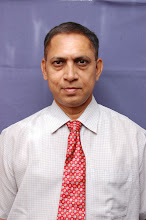Beginning from the verse 27 in the second chapter of “Bhagavad Gita”, Lord Krishna points out that not understanding about what Birth and Death is will cause problems to us. Logically there cannot be birth or death. Creation is nothing but a form of change from one state to another. This can be extended to death or destruction. The world is Anadhi (No beginning). The world is Ananthaga (Infinite, Endless). There is neither creation nor destruction. We can see Water in 3 states. Solid (ice), Liquid (water), and Gas (vapour) which is invisible. What is invisible is called Avyaktha Avastha. It is an eternal process. Thus lord Krishna tells Arjuna, nothing is born and nothing is dying and asks him why he is then crying.
Matter cannot be created or destroyed as per the law of conservation of matter. By the law of conversion of energy, the total energy created is constant. For example, we can see a substance which is transforming from one condition to another. Ice gets transformed into Water and water gets transformed into Vapour and Vapour condenses into water. When stars explode it is converted into energy. i.e. matter gets converted into energy. Similarly Birth (Janma) is unmanifested in the beginning and becomes (transforms) manifested later. An understanding of this process will lead to acceptance of the process. Emotional resistance directed towards a natural process is called sorrow. A wise man who knows “Atma” will not grieve in life. (Chandokya Upanishad 7th Chapter).
The three things that Vedanta says are very important to all of us. Vedanta alone says ‘I’ am immortal (Wonder 1). As per Vedanta, you are all pervading “Atma” (Wonder 2). As per Vedanta you are not in the world; the entire Cosmos including the entire Galaxy and including time and space are born in you. They rest in you and gets resolved in you (Wonder 3). (Thaithreya Upanishads). ‘I’ am the eternal all pervading consciousness principle. To realize this you have to do Sravanam (Listening to the truth of Vedanta), Mananam (contemplation or reflection upon the truth) and Nidhithyasanam (Meditation, Undergo orientation program).
Consciousness is different from body mind complex. We can see the 5 features of consciousness which is our own real nature as under:-
1. Consciousness is not a part or a product or a property of the body.
2. Consciousness is an independent formless principle which pervades the body and enlivens the formed body.
3. Consciousness is not limited by the boundaries of the body and extends beyond the body infinitely and is all pervading.
4. This formless Consciousness principle will continue to exist even after the body dies or disintegrates and has no date of birth and date of death.
5. After the fall of the body, the surviving pure consciousness is not accessible to us because there is no body medium. Hence consciousness is not available for transaction.
As per Vedanta, this consciousness is my real nature. ‘I’ am the consciousness with a temporary body. The body is renounced at the time of death. ‘I’ the formless consciousness will eternally continue. ‘I’ the eternal consciousness is my real nature called ‘Atma’. In the second chapter of Gita 6 words are used in the verses from 12 – 15 describing the “Atma”.
Atma is 1. Nithyaga (eternal without birth and death), 2. Sathyaga (that which lends existence to matter), 3. Akartha (not the doer of any action, good or bad), 4. Aboktha (non receiver of the result of an action), 5. Sarvagathaga (that which is all pervading) e.g. Space which is all pervading and accommodating all of us, 6. Aprameyaga (that which is never an object of experience. It is an observer. The observer cannot be observed).
We should know that nature cannot be changed because what cannot be changed is nature. Wisdom or intelligence is preparing the mind to accept the choiceless or helpless situations without any resistance. By repeating to ourselves (meditation) and repeating to our own mind that I am willing to undergo the choiceless situations we get freedom from stress. Examples of choiceless situations are Old age, incurable disease, separation from someone etc. The only one who can be changed by me is myself. Pray to the bagawan; O lord give me the courage to change what can be changed i.e. myself. O lord give me the serenity to know the difference i.e. Others cannot be changed and I should change myself which is the only thing possible.
Be blissful.
S.SEKAR
Sekras >>>>>>>High Performance Always
Contact: sekrajc@yahoo.com
